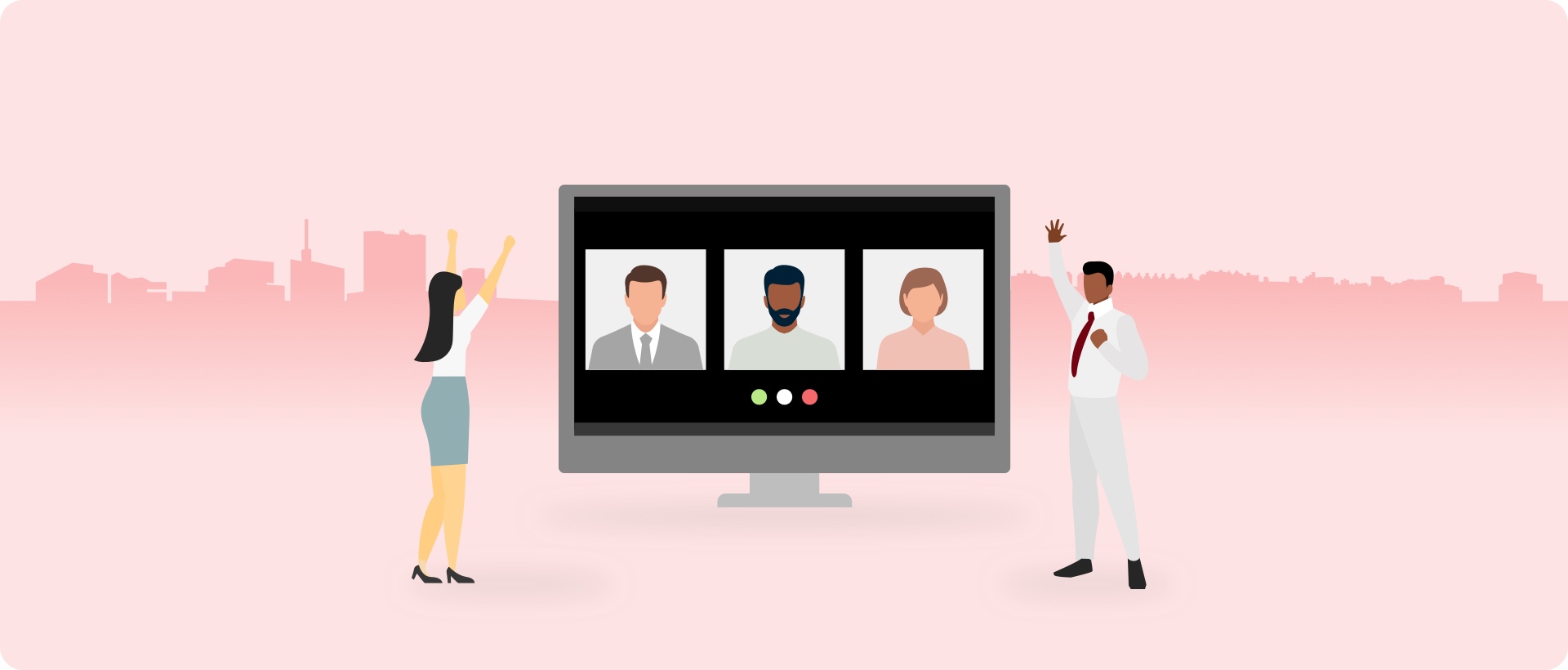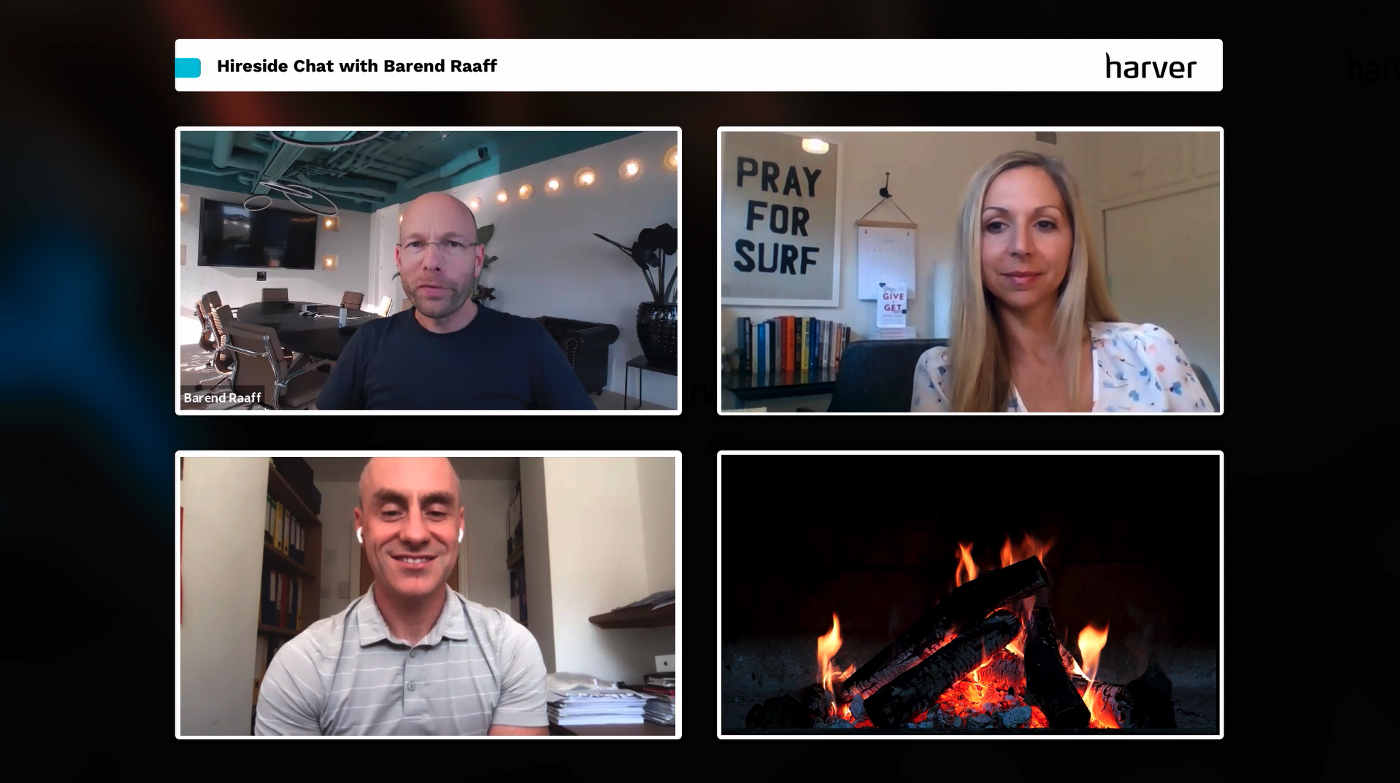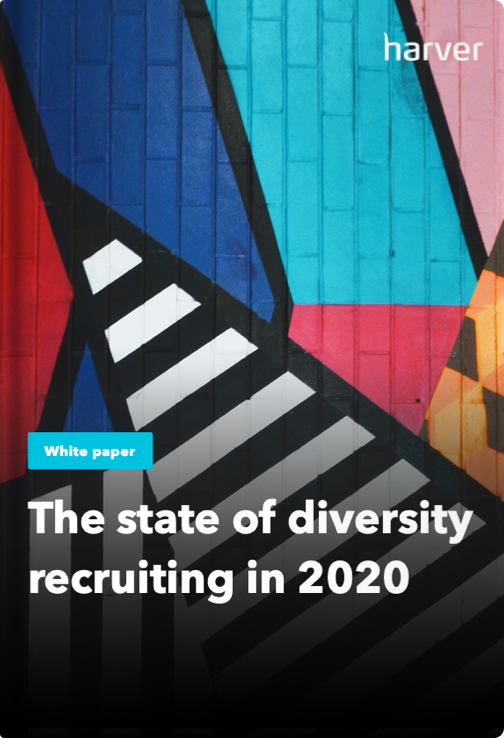In recent months, we’ve seen a lot of instances of employers mismanaging their staff. There are numerous examples, from layoffs on a company-wide Zoom call to companies issuing statements on the Black Lives Matter (BLM) movement and then being called out on their own discriminatory practices, and beyond.
Fortunately, we’ve seen a lot of good examples as well: brands sharing their learnings, acknowledging their own shortcomings, and coming up with concrete plans on how to do better in the days ahead. Let’s take a look at 9 examples of amazing employer branding in action, plus why they’re important to consider during these trying times.
What’s in?
Like what you see?
Don’t miss out. Subscribe to our quarterly digest to get the latest TA and TM resources delivered right to your inbox.
Why is employer branding important in times of change?
“The way you started to treat your people during COVID, but especially now, with the racial unrest and the inequity issues that are being highlighted, it’s defining brands for decades to come.” – Charlotte Marshall, an employer brand leader
Employer branding should always be a top priority, but it’s especially important during turbulent times like the COVID-19 pandemic and recent Black Lives Matter events. Whether you’re hiring for new roles or dealing with a round of layoffs, both potential and current employees expect clear, consistent communication during a crisis.
Of course, not communicating effectively can have significant implications for your brand. As Aaron McEwan, vice president of advisory at Gartner, explained: “In this pandemic, how organizations respond could have enormous implications for their employer brand, corporate reputation and even their financial survival.”
On the other hand, by taking steps to implement employer branding best practices, you can positively influence how your future and current employees (as well as the general public) perceive your brand. To learn more, check out our recent Hireside Chat video with employer brand leaders Bryan Adams and Charlotte Marshall on how your employer brand can help you survive in times of crisis:
Watch the full Hireside Chat episode here.
Now, let’s take a look at some of the companies that are doing an awesome job managing their employer brands during recent events!
1. Target
Target, a well-known American retail corporation, is the 8th-largest retailer in the U.S. In response to the COVID-19 health crisis, the company launched a coronavirus hub dedicated to keeping employees and customers informed. The hub covers several important and relevant topics, answering questions about what Target is doing to keep team members safe, how they’re monitoring staff health and symptoms, and much more.
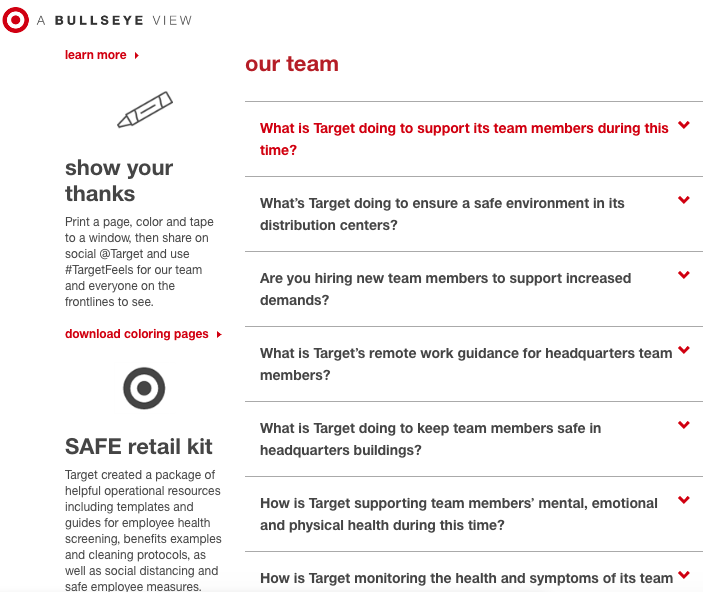
Why it works: Target’s coronavirus hub is convenient and useful, as it pulls all relevant information together in one easily accessible location. However, perhaps the best feature is the ability to download free coloring pages, which allows website visitors (and colleagues) to show frontline workers their thanks and share it on social media with #TargetFeels. This is a fun and uniquely branded way to show solidarity during such a difficult time when morale is likely to be down.
2. Frame.io
Frame.io is a video review and collaboration software company based in the New York City. Recently, the company released a statement expressing their support of the Black Lives Matter movement and highlighting the ways they’ll take action. Emery Wells, the chief executive officer at Frame.io, shared his thoughts in a post on the company’s blog:
“We’re committed to influencing how the media and tech industries, historically lacking in diversity, support underrepresented groups. The fight for justice and the right to be treated equally are causes we connect with deeply as humans, and we’ve woven that into the fabric of our company’s beliefs. We recognize that we can do much more and that this work needs to be ongoing.”
Along with making Juneteenth (June 19th) an annual “Day of Action” at Frame.io, the company has also made a commitment to fill 50% of all incoming management and leadership roles with underrepresented groups. They’re also beginning the first phase of an Ally Training curriculum for all employees and launching a mentorship program for K-12 students from underrepresented groups interested in media and tech.
Why it works: Frame.io is taking these steps and more to “listen, to learn and to uplift Black voices and stories.” What’s wonderful about their approach is that they’re putting their money where their mouth is, so to speak, by taking action to create real, meaningful change. This is likely to be much better received than companies that post on social media and/or donate funds—without initiating change within their own organization.
3. Salesforce
Salesforce is an American cloud-based software company headquartered in San Francisco, California. The tech leader recently held a live Q&A session focused on what they’re doing to keep everyone—employees, customers, and communities alike—safe during the COVID-19 pandemic.
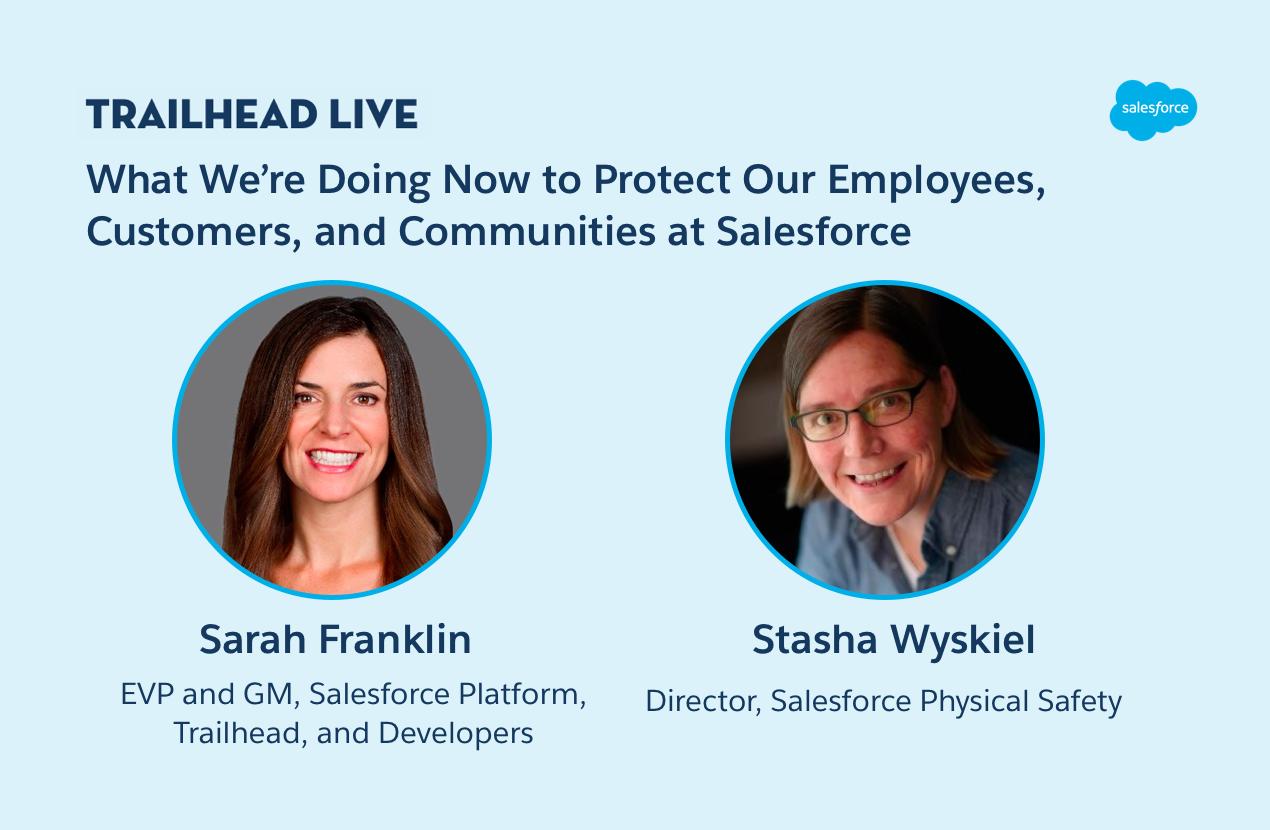
The live LinkedIn broadcast featured several members of the Salesforce leadership team, including their director of physical safety and executive vice president of the Salesforce platform. In addition to hosting the Q&A session to answer important questions, Salesforce has also taken to social media platforms to show the human side of their business. They’ve shared helpful tips and resources for working from home with children, as well as funny snapshots from employee video calls.
Why it works: Job candidates (and current employees) are sure to appreciate the candidness and transparency Salesforce has put forth—especially during such an unprecedented time where many are likely to have questions. According to talent leaders, complete transparency is essential for building trust.
“Transparency for building trust is so important right now. Trust is how we’re going to get work done quickly. When we need people to be productive right now, it’s so important to build their trust.” – Jeanne Schad, talent solutions and strategy practice leader at Randstad RiseSmart.
4. Typeform
Typeform, a computer software company based in Barcelona, Spain, has been using social media platforms like LinkedIn and Twitter to share heartwarming content. From photos of work from home setups and gift boxes for employees, they’ve gone above and beyond to post quality content that resonates.

However, perhaps the best example of Typeform’s awesome social media strategy is a video shared on LinkedIn, which features an employee named Anna singing on her balcony during quarantine. The video is both fun and empathetic, showcasing community and boosting spirits.
Why it works: Typeform’s approach works well because their social media voice is very genuine and relatable. Potential employees will love seeing how invested the company is in their team members, as well as the lighthearted tone that positions Typeform as caring and empathetic, which are ideal in terms of employer branding.
5. Walmart
Walmart, an American multinational retail corporation and the largest employer in the U.S., recently launched a new video ad that has gained a lot of traction. The video features Walmart employees singing Bill Withers’ classic hit, “Lean on Me.”
The video is part of a larger campaign and message, with the slogan “here for you” featured at the end. There’s also a landing page dedicated to the many ways Walmart employees are helping make a change and how the corporation is supporting their team members during the health crisis.
Why it works: The Lean on Me video, which is titled “Walmart Neighbors,” resonates with viewers and potential employees for a few reasons. For one thing, it’s an uplifting, hopeful message that tugs at the heartstrings. It also showcases how Walmart employees are coming together to provide essential services during such a difficult time.
The state of diversity recruiting in 2020
6. Tony’s Chocolonely
Tony’s Chocolonely is a confectionery company based in Amsterdam, Netherlands, that produces and sells chocolate following fair trade practices. These Dutch chocolate connoisseurs recently announced that July 1st would become an official day off for their employees in recognition of “Keti Koti,” which is Surinamese for “broken chains.” Keti Koti marks the date when slavery was officially abolished in Suriname and the Dutch Antilles.
Along with introducing the companywide day off, Tony’s Chocolonely is also calling for government recognition and action. In the U.S., Tony’s employees have the day off on Juneteenth, which is a holiday celebrating emancipation for those who were once enslaved. Employees in the U.K. will have an International Day for the Remembrance of the Slave Trade and its Abolition on August 23rd.
Why it works: Tony’s Chocolonely’s approach works well because it completely aligns with their larger brand mission to fight for equality and fairness. This is especially important in the wake of several brands receiving backlash after issuing BLM statements that didn’t align with their current practices.
In a statement released on their website, Tony’s Chocolonely explained their stance on inequality and social injustice: “It is systematic injustice that Tony’s has vouched to change. We focus our efforts on the people working in the cocoa industry. We’re far from perfect and we continuously learn along the way while we aim to lead by example in creating more equality in the cocoa sector. Our mission is to end the most dire forms of inequality—modern slavery and illegal child labor—in the cocoa industry.”
7. HCA Healthcare
HCA Healthcare is a healthcare company based in Nashville, Tennessee in the U.S. Since the start of the COVID-19 pandemic, the company has held a number of virtual job fairs and hiring events. This has empowered the organization to continue filling open roles without putting current and potential employees at risk.
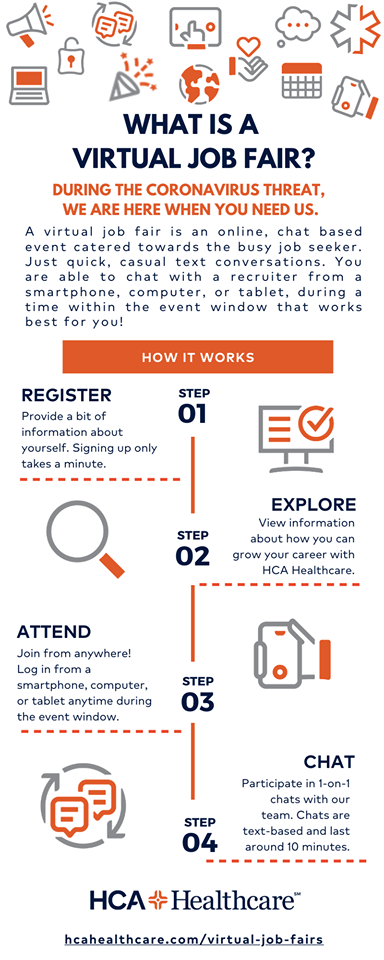
To help promote their virtual job fairs and explain the process, HCA Healthcare also created a useful infographic that breaks down how it works. They shared the infographic on social media channels, as well as on the careers section of the company website. Here’s how they introduced their new virtual events in a social media post:
“During these times of social distancing, the world has gone virtual, and so have we! You can continue #UnlockingPossibilities with us virtually so that we can continue to find additional support for our nurses and other healthcare professionals!”
Why it works: Job candidates will certainly appreciate the opportunity to interview for open roles without potentially exposing themselves to COVID-19. Plus, the infographic offers visual, easy-to-follow instructions to make the process as simple as possible for job seekers who haven’t attended a virtual hiring event before.
8. HubSpot
HubSpot, an American developer and marketer of software products, has taken a very unique approach on their social media platforms. The company has been utilizing @HubSpotLife, an Instagram account dedicated to showcasing the company’s culture, to engage employees throughout the COVID-19 pandemic.
From sharing quotes and resources to professing support of the Black Lives Matter and LGBTQ movements, HubSpot has found several creative ways to engage team members around the world during times of change. Team members have even been invited to host “employee takeovers” on the Instagram account, where they can share their own tips, experiences, and remote work setup.
Why it works: Simply put, HubSpot is killing it at the employer branding game. Their strategy works so well because their content is both authentic and engaging, which is certain to resonate with job seekers researching companies who are hiring during the pandemic. Potential employees will also love the diversity showcased on the Instagram account, as many posts are tied to real-life HubSpot employees within underrepresented groups.
9. Verizon
Verizon, an American multinational telecommunications corporation, has initiated several changes in response to COVID-19. In addition to the same changes that many companies were forced to make, such as going fully remote for a period of time, they’ve also introduced several new resources to help employees adjust and keep them engaged.
For example, in order to continue “mindful activities,” Verizon has been holding virtual workout classes for employees who can no longer train at its facilities. Additionally, the executive team conducts daily broadcasts to keep employees up-to-date and has virtualized onboarding and training for new team members.
“It’s not pretty, and everything’s not working perfectly, but we put employee safety and health very high on our priority list,” said Christy Pambianchi, Verizon’s chief human resource officer, about the recent changes.
Lastly, Verizon partnered with Accenture to develop People + Work Connect, an employer-to-employer platform designed to help furloughed workers find new jobs at a faster rate. “We can really accelerate companies finding out who’s looking to hire employees, who’s looking to add and who is looking to reduce. HR teams can really make a difference here,” Pambianchi explained.
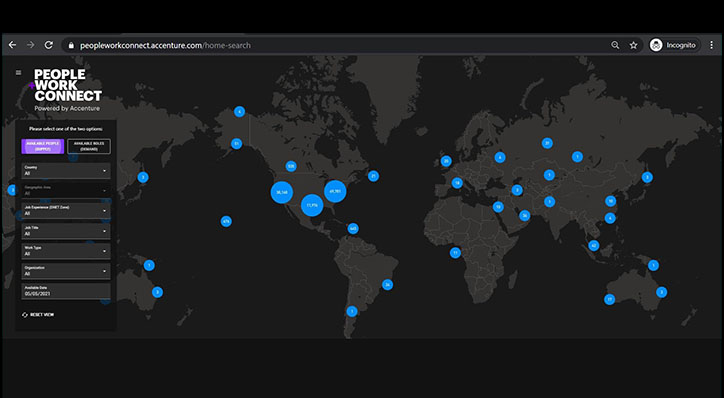
Why it works: Potential employees will take comfort in seeing all these changes and innovative ideas brought to life, despite navigating such hard times. By embracing change, Verizon has positioned itself as an agile company dedicated to adapting and innovating during a crisis like the COVID-19 pandemic.
Summing it up
What you’re doing now is defining you as an employer for the future. You might be in a hiring freeze or even laying people off, but you need to realize that your employer brand doesn’t only serve to attract talent but also to re-engage your current employees. Which is something you can’t ignore at any time, and especially not in a turbulent time.
The state of diversity recruiting in 2020
